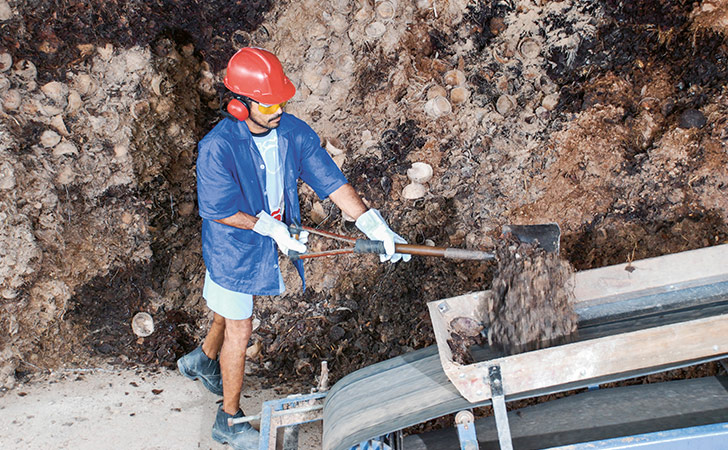Focus: Switch to renewable biomass at ceramic factories in Brazil
When selecting compensation projects for our CO2 emissions, we require them to be of the highest quality and to have tangible social benefits. In 2017, we chose “Gold Standard” projects that support small ceramics factories in Brazil to switch to fuel from renewable biomass.
Deforestation is the largest source of greenhouse gas emissions in Brazil and illegal logging for firewood is a primary cause of this. Ceramics factories, for example, have long been using native wood to fire their kilns. This not only produces CO2 emissions, but also places the country’s native forests under significant threat of deforestation.
The Ceará and Balsas Renewable Energy Projects combat both climate change and deforestation by replacing the ceramic factories’ primary source of fuel – deforested wood – with renewable energy won from agricultural and industrial residues.

Renewable biomass is being fed into the kiln of a ceramic factory in rural Brazil, replacing firewood as the primary source of fuel and thus substantially reducing CO2 emissions. We have supported this project through the Voluntary Emissions Reductions we have bought.
This biomass would have been discarded as waste otherwise, so the fuel switch transforms residues into something useful. In addition, it enables many local residents to earn an income by supplying biomass waste directly to the factories.
Switching to biomass fuel also benefits the employees’ health and working conditions in a number of ways. The employees no longer need to carry heavy wood to the factory. Before the switch, they were also exposed to extreme heat and air pollution when firing up the kilns with wood. In both projects, the factories have had new equipment such as automatic feeders installed, which allow for an efficient use of the biomass and improve working conditions.
The factories of the Ceará project have also adopted a system to reuse industrial wastewater, a crucial step in a region afflicted by severe droughts. At the Balsas factory, finally, ceramic houses have been built for employees and their families, with utility costs included.
Together, the two projects have managed to avoid approximately 41 860 tonnes of CO2e emissions annually. Over the course of the last ten years, they have helped to save about 2 730 hectares of forest from being logged, the equivalent of more than 2 180 football pitches.